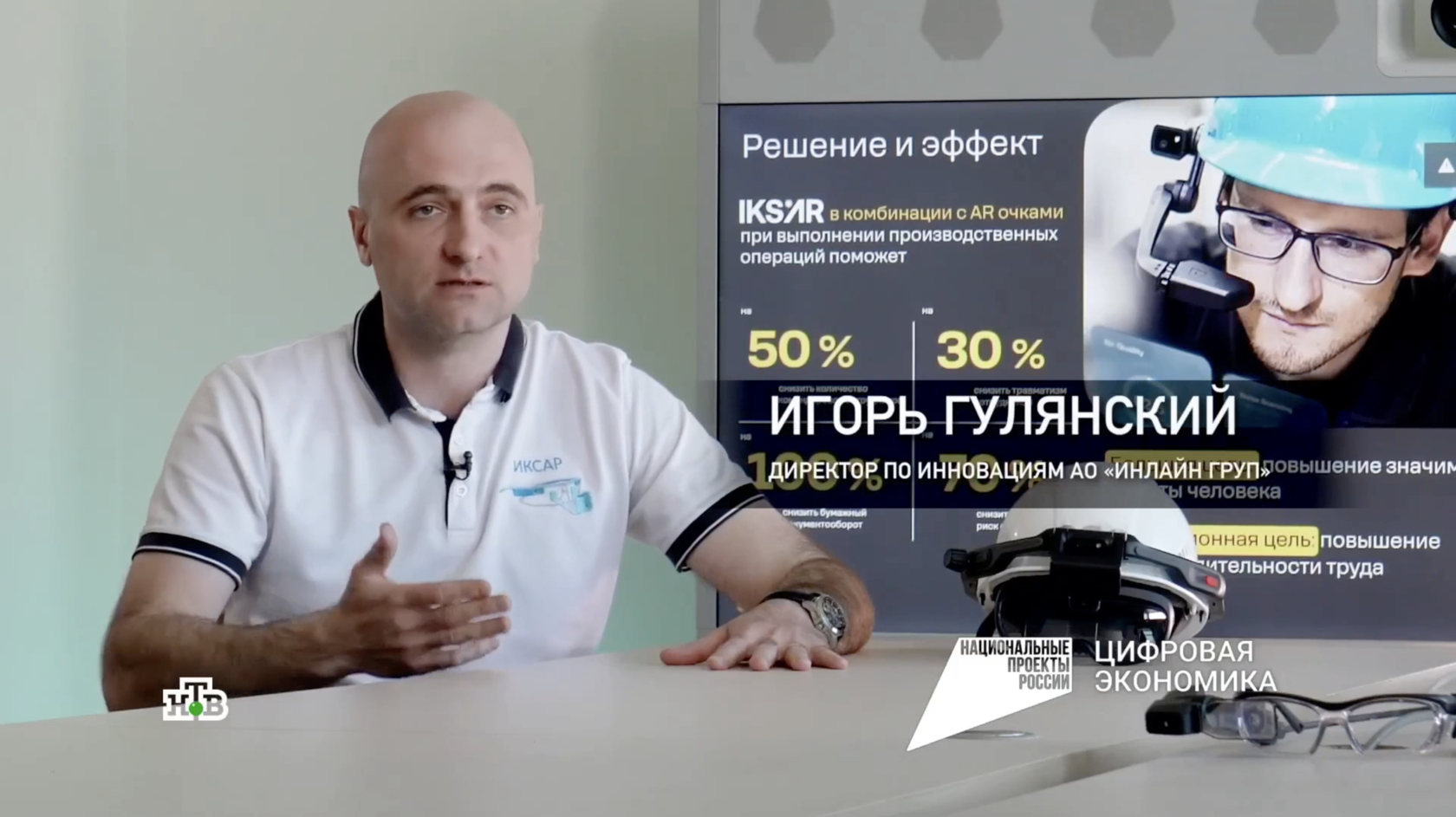On May 28, a segment about IKSAR aired on NTV’s show "The Wonders of Technology". The general public was introduced to an innovative product in the field of augmented and mixed reality, highlighting its countless scenarios for use in various industrial sectors, a wide range of tasks it can solve, and the effects it can achieve.
As part of the National Project "Digital Economy" the most prominent domestic developments in priority innovative areas of Russia’s technological development are showcased. The domestically developed software IKSAR, in combination with industrial-grade augmented reality glasses (AR glasses), is already assisting in various professions. The segment on NTV specifically revealed the platform’s capabilities for mechanics who monitor the technical condition of logging trucks. With the help of IKSAR, a mechanic can analyse defects in the vehicle, capture driver’s observations on specific components and assemblies through photos and videos, and order spare parts from the warehouse. If necessary, the mechanic can engage in video conferencing with remote experts, including representatives from the dealer or equipment manufacturer, for more detailed diagnostics of the malfunction and exploring optimal solutions. Service and dealer centres are often located at significant distances, and organising video communication through AR glasses allows them to see and hear the nature of technical issues from a first-person perspective in real-time.

Reducing equipment downtime is a priority task for any manufacturing enterprise. The combination of IKSAR and AR glasses helps reduce the probability of errors due to human factors by up to 70%, resulting in potential savings of hundreds of millions of rubles. These savings come from reducing direct expenses on repairs and breakdown recovery, as well as significant mitigation of lost profits caused by downtime.
Last year, the IKSAR team began participating in the Sprint accelerator based on the FRII, with support from the Ministry of Digital Development, Communications and Mass Media of the Russian Federation. By the time the program concluded in April of this year, the team had shown significant growth in key metrics, such as shortened deal cycles, the number and value of signed contracts, and had also found new partners. They began testing the IKSAR platform in collaboration with a domestic mobile methane sensor placed on a helmet for inspecting gas transportation infrastructure.
IKSAR continues to develop its product, explore new application areas, and seek partners.
